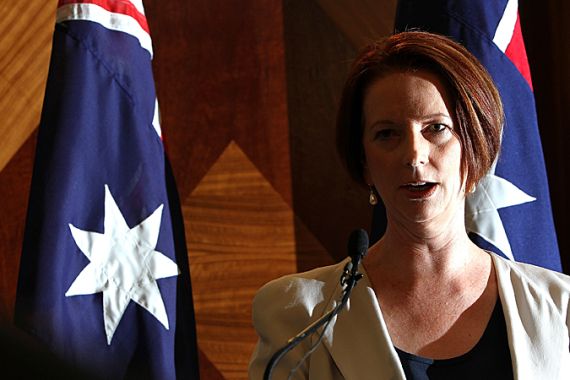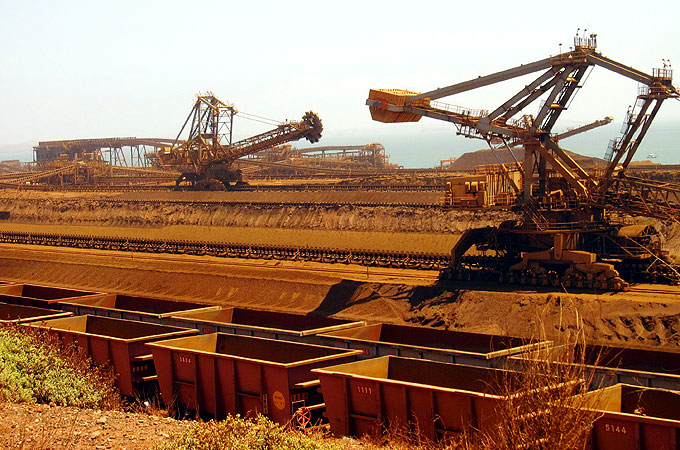Australia mining tax clears final hurdle
Mining firms decry move as parliament passes 30 per cent tax on iron ore and coal mine profits.

 |
| The new laws aim to spread the benefits of the mining boom to all Australians [GALLO/GETTY] |
Australia’s parliament has passed laws for a new 30 per cent tax on iron ore and coal mine profits after a bruising two-year battle with mining companies.
The laws passed on Monday are a major victory for Prime Minister Julia Gillard and her struggling minority government.
Keep reading
list of 4 itemsWhy are nations racing to buy weapons?
Parallel economy: How Russia is defying the West’s boycott
US House approves aid package worth billions for Ukraine, Israel
The tax will affect about 30 companies, including global miners BHP Billiton, Rio Tinto and Xstrata, and aims to raise about $11.2bn (A$10.6 billion) in its first three years.
“This is indeed an historic day for economic reform, and an historic day for a fair go in Australia,” Treasurer Wayne Swan told parliament.
Gillard defended her decision on Tuesday, saying the benefits would be spread to all Australians.
“Australians know how important the mining industry is, but they also know that we can only dig up and sell the resources once,” said Gillard. “The Minerals Resource Rent Tax will deliver Australians with a fair return on the resources they own 100 per cent.”
“The Gillard government believes all Australians should share in the benefits of the mining boom, not just a fortunate few,” she said.
Hike condemned
The tax, which is being closely watched by other resource-rich countries, is designed to spread the benefits of Australia’s resources boom to other sections of the economy by funding a cut in the company tax rate, higher payments into pension funds, and $6.3bn (A$6 billion) of infrastructure spending.
The bills also include measures to lift gradually compulsory employer payments into worker pension funds from nine per cent to 12 per cent by mid-2019.
The Association of Mining and Exploration Companies, which represents small and mid-tier miners, however, condemned the tax.
“The tax is simply unfair to smaller emerging miners, and is so complex that the administrative and compliance burden on industry and government will be extreme,” association chief executive Simon Bennison said.
“The introduction of this anti-competitive legislation in Australia will only further push investment capital offshore, and change our reputation as a safe place in which to invest.”
The laws were passed through the upper house senate with support from the Greens party, who unsuccessfully tried to increase the tax rate to 40 per cent and extend it to gold and uranium miners.
The Labor government originally wanted a 40 per cent tax on all extraordinary profits generated by resources firms as the nation enjoys unprecedented demand for its vast mineral deposits, mostly from rapidly industrialising Asia.